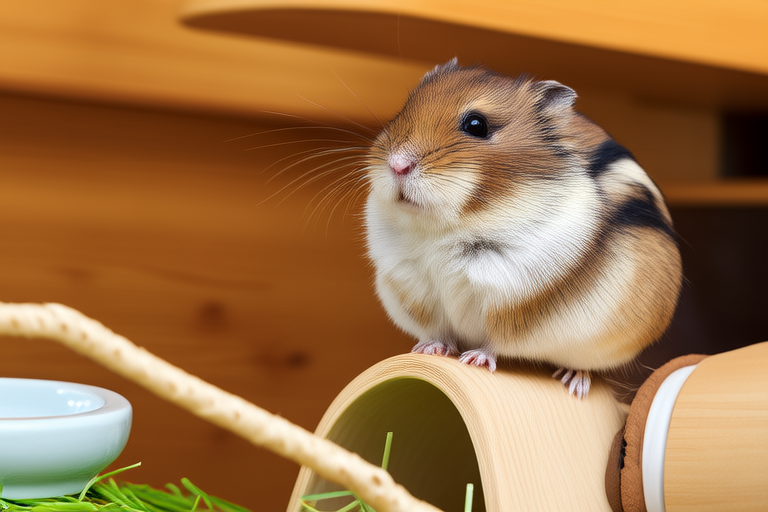7 Secrets to Keeping Your Chinchilla Happy and Healthy at Home
Chinchillas are delightful creatures that have become increasingly popular as pets. Known for their soft, luxurious fur, these small rodents require specific care to thrive in a home environment. This article provides seven essential secrets to ensuring your chinchilla remains happy and healthy, covering everything from diet and habitat setup to exercise, grooming, social interaction, temperature control, and healthcare maintenance.
1. Nutritious Diet: The Foundation of Health
Proper nutrition is crucial for any animal, and chinchillas are no exception. Their diet should primarily consist of high-quality hay, which aids digestion and dental health. Timothy hay is ideal for adult chinchillas, while younger ones may benefit from alfalfa hay for additional nutrients. Pellets designed specifically for chinchillas provide necessary vitamins and minerals. It’s important to avoid feeding them foods like nuts, seeds, or sugary treats, as these can lead to obesity and other health issues. Fresh water should always be available, and it’s recommended to use a bottle with a sipper tube to prevent contamination.
Veterinary expert Dr. Emily Thompson advises, “A balanced diet ensures optimal health. Regularly check the quality of the hay and pellets to ensure they’re fresh and nutritious.”
2. Habitat Setup: Creating a Comfortable Living Space
The habitat for your chinchilla should be spacious enough for them to move around freely but secure to prevent escape. A wire cage with multiple levels is ideal, offering ample room for climbing and exploration. The bottom of the cage should be lined with bedding material such as fleece or paper-based products, avoiding wood shavings that can cause respiratory issues. Additionally, include hiding spots, tunnels, and toys to stimulate mental and physical activity. Chinchillas enjoy gnawing, so providing wooden chew toys helps maintain their teeth at a healthy length.
Dr. Thompson adds, “Ensure the cage is placed away from direct sunlight and drafts. These animals are sensitive to changes in temperature and humidity.”
3. Exercise Needs: Encouraging Physical Activity
Chinchillas are naturally active creatures that need regular exercise to stay fit and mentally stimulated. In addition to the space provided within their cage, consider setting up a safe play area outside the cage. This could be a large, enclosed room or a designated playpen. Supervised playtime allows them to run, jump, and explore, mimicking their natural behavior. Rotate toys periodically to keep them engaged and interested. Remember, chinchillas are nocturnal, so they’re most active during the evening and night, making this the best time for play sessions.
According to Dr. Thompson, “Regular exercise not only keeps them physically healthy but also reduces stress and behavioral problems.”
4. Grooming Practices: Maintaining Fur and Skin Health
Grooming is vital for chinchillas, as their dense fur requires regular care. Dust baths are essential for keeping their coat clean and free from oils and dirt. Use a commercial dust bath mix specifically formulated for chinchillas, as other types can be harmful. Allow your chinchilla to bathe for about 10-15 minutes, ensuring the dust is removed afterward. Brushing their fur occasionally can help prevent tangles and mats. However, over-bathing can strip their skin of natural oils, so limit baths to once or twice a week.
Dr. Thompson emphasizes, “Consistent grooming routines contribute significantly to their overall well-being. Always supervise during dust baths to ensure safety.”
5. Social Interaction: Fostering Emotional Well-Being
Chinchillas are social animals that can form strong bonds with their human caregivers. Spend time interacting with your chinchilla daily, talking softly and handling them gently. They enjoy being petted on the head and back but may not appreciate excessive handling. Some chinchillas can learn to respond to their names and even participate in simple training exercises. Providing companionship through interaction helps reduce anxiety and promotes a positive relationship between you and your pet.
Dr. Thompson notes, “Positive reinforcement techniques can be effective in training, enhancing both your bond and their confidence.”
6. Temperature Control: Ensuring a Suitable Environment
Chinchillas are native to the Andes Mountains and are accustomed to cooler climates. Therefore, maintaining a consistent temperature between 60°F and 70°F (15°C to 21°C) is crucial for their comfort. Avoid placing their cage near windows, heaters, or air conditioning units. High humidity levels can be detrimental, leading to skin conditions or respiratory issues. Use a hygrometer to monitor humidity, aiming for levels below 40%. If necessary, use a dehumidifier to regulate the environment.
Dr. Thompson warns, “Extreme temperatures or sudden changes can stress chinchillas, affecting their health.”
7. Healthcare Maintenance: Preventive Care and Monitoring
Regular health checks are vital for early detection of potential issues. Schedule routine visits with a veterinarian experienced in exotic animals. Signs of illness may include changes in appetite, lethargy, discharge from eyes or nose, or abnormal feces. Monitor their weight regularly, as fluctuations can indicate underlying problems. Dental health is particularly important; chinchillas’ teeth grow continuously, so ensure they have access to appropriate chew toys. Vaccinations are not typically required for chinchillas, but consult your vet regarding specific recommendations based on location and circumstances.
Dr. Thompson concludes, “Preventive care is key. Establish a routine with your vet and stay vigilant for any unusual symptoms.”
In summary, keeping your chinchilla happy and healthy involves attention to diet, habitat setup, exercise, grooming, social interaction, temperature control, and healthcare maintenance. By following these seven secrets, you’ll provide your pet with the best possible life at home. Remember, each chinchilla is unique, so observe their behavior and adjust care accordingly to meet their individual needs.
